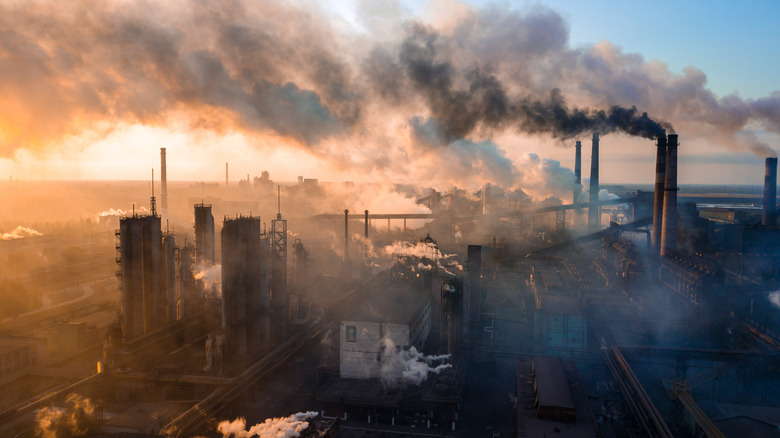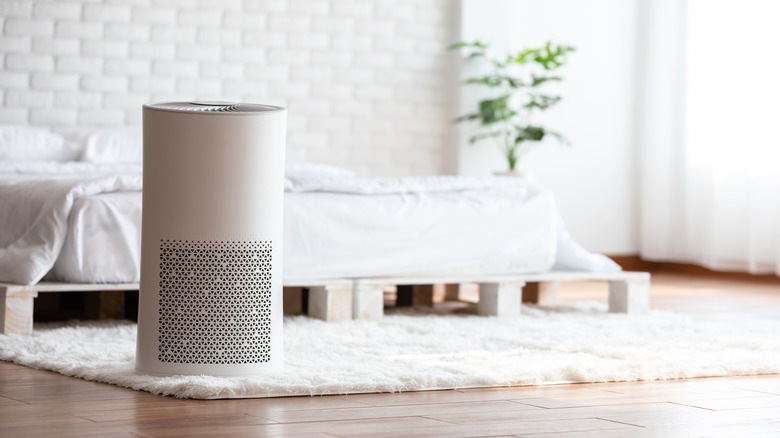Experts Reveal Why Toxic Metals At Work Can Pose Health Risks At Home
You probably try not to think about work too much while you're at home. But there may be a good reason to, especially if you work in the construction industry. According to US News, people who work in construction are at risk of bringing home toxic metals that they are exposed to during their work day. A study recently published in Environmental Research found that construction workers, janitorial workers, and auto repair workers were all at risk of being exposed to toxic metals while at work. However, construction workers consistently brought home higher levels of lead, arsenic, chromium, copper, manganese, nickel, and tin dust than the other two professions.
"Many professions are exposed to toxic metals at work, but construction workers have a more difficult job implementing safe practices when leaving the worksite because of the type of transient outdoor environments where they work, and the lack of training on these topics," said study lead author and director of the Exposure Biology Research Laboratory at Boston University School of Public Health Diana Ceballos. Higher levels of toxic metals were also found on people who did not have a work locker to store their clothes and did not have easy access to laundry services.
How environmental factors can affect your indoor air quality
It's not just families of construction workers that need to think about what allergens and pollutants are being brought inside their homes. Anyone who enters your home can track in dirt, debris, pollen, and other allergens that can then get trapped in your carpet (via The Healthy). These can easily get kicked up into the air and affect your health. To deal with these pollutants, vacuum carpets and rugs once or twice a week and sweep floors at least once a week.
Your air conditioner and furnace both play an important role in your home's air quality as well. These appliances circulate outdoor air throughout your house and pick up dirt, debris, and allergens along the way. A high-quality HEPA air filter should be installed on all HVAC devices to stop pollutants from being sent back into your home. "The EPA has found that indoor air quality can be five to ten times worse than outdoor air, and poor indoor air quality can lead to or exacerbate respiratory issues like asthma and allergies," said Lara Adler, an environmental toxins expert and certified holistic health coach in Portland, Oregon. Regular cleaning of your air ducts can also prevent environmental contaminants from being spread throughout your home.


